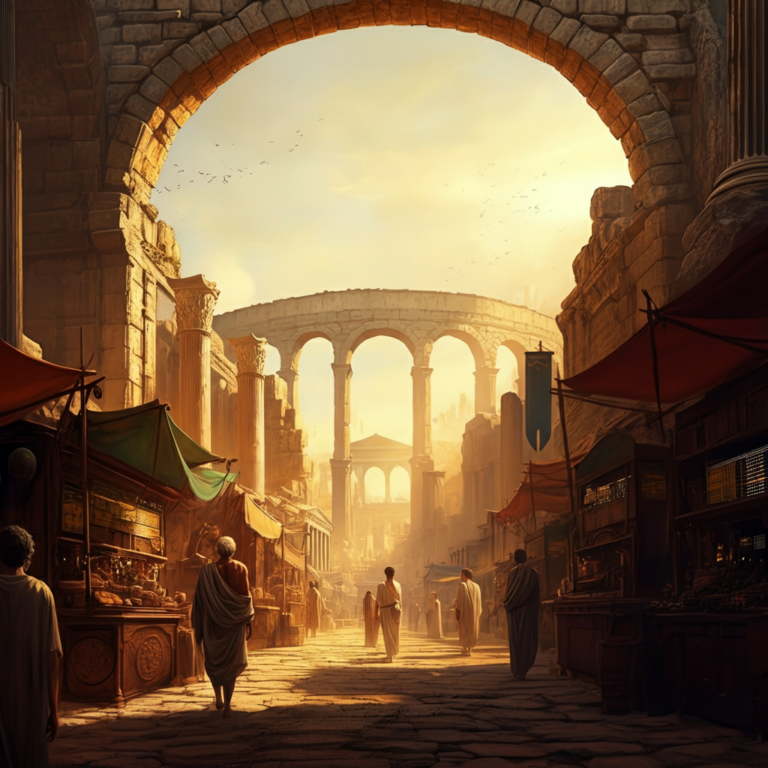The Roman Empire, a vast and powerful civilization, shaped much of our modern world. Its influence stretched from culture and politics to engineering and law, leaving an indelible mark on history. But by 476 AD, the Western Roman Empire had crumbled under the weight of invasions, internal discord, and economic turmoil. Still, the question tantalizes historians and enthusiasts alike—what if the Roman Empire never fell?
Imagine a world where Roman legions still patrolled Europe, where aqueducts flowed uninterrupted, and Roman innovation fueled centuries of development. How different would our world be? This thought-provoking scenario captures not only the imagination of history buffs but also challenges us to reconsider the fragile interplay of power, progress, and decline.
The Fall of an Empire
The Roman Empire’s story is one of grandeur and complexity. At its peak, roughly around 117 AD under Emperor Trajan, the empire stretched from modern-day Scotland to the Middle East, encompassing a fifth of the world’s population. It was a beacon of innovation, offering architectural marvels like the Colosseum, aqueducts, and roads that still stand today.
However, even the mightiest empires have vulnerabilities. By the 3rd century AD, Rome faced mounting challenges. Economic instability, overexpansion, political corruption, and a reliance on slave labor taxed the empire’s immense resources. Add to that the incursions from “barbarian” tribes like the Visigoths, Vandals, and Huns, and the Roman Empire was teetering on the edge.
Despite efforts by leaders like Diocletian and Constantine to reinforce imperial power, the Western Roman Empire fell in 476 AD when Odoacer, a Gothic chieftain, overthrew the last Roman emperor, Romulus Augustulus. Meanwhile, the Eastern Roman Empire, also known as the Byzantine Empire, endured until 1453, but its fate was ultimately sealed as well.
Turning the Tide: Moments That Could Have Changed History
Several moments could have altered the Roman Empire’s trajectory and prolonged its dominance:
- Better Leadership
The quality of Rome’s leadership varied wildly—from the disciplined Augustus to the erratic Nero. If the empire had secured stronger lineages of capable emperors, perhaps they could have responded more effectively to internal and external threats.
- Sustainable Economic Reforms
Rome’s economy relied heavily on conquests to fund its operations. If innovative economic policies had replaced reliance on expansion and slave labor, the empire might have built a more sustainable future.
- Preventing Succession Crises
Frequent civil wars over succession destabilized the empire time and again. Had Rome established clear and enforceable succession laws, it could have avoided these catastrophic power struggles.
- Repelling Invaders
Suppose Rome had mustered the resources to repel invasions from groups like the Visigoths or Huns. The empire might have retained its territories and influence across Europe for centuries longer.
What If the Roman Empire Never Fell?
Now, let’s venture into the “what if.” Imagine the Western Roman Empire enduring well beyond the 5th century. Ancient Rome’s intricate network of infrastructure, coupled with its knack for absorbing and adapting from other cultures, would have served as fertile ground for innovation.
Here’s what might have occurred in an alternate historical timeline:
- Technological Advancements Would Accelerate
The Roman passion for engineering was unmatched. With centuries of uninterrupted development, technologies like steam engines, printing presses, and aqueduct systems could have emerged much earlier, propelling civilizations centuries ahead of their time.
- Modern Governance Rooted in Roman Law
Roman legal principles already underpin much of modern judicial systems. A continuous Roman state might have expanded and formalized these laws, giving birth to even more inclusive and efficient governance.
- Unified Religion and Culture Across Europe
Christianity became the dominant faith in Europe largely due to its official adoption by the Romans. A sustained Roman Empire might have accelerated religious unification while retaining local cultural diversity through its tolerance of different traditions.
- A Stable Geopolitical Framework
A united Europe under Rome’s banner could have avoided the fragmentation of the Middle Ages. Without feudal systems, inefficiencies in governance might have been reduced, and the continent might have avoided centuries of strife.
- No European Colonialism?
A dominant Roman Empire might have focused on trade rather than colonization, changing the entire trajectory of world history. Instead of European powers vying for territories across Asia, Africa, and the Americas during the 1500s, perhaps more cooperative global economic systems would have taken root earlier.
Empires and Their Inevitable Transformation
History shows us that even the grandest empires falter. Take, for instance, the Han Dynasty in China, the Persian Empire, and even the British Empire much later. Could Rome realistically have avoided decline forever? Probably not. The sheer complexity of managing a sprawling empire would eventually stretch its resources too thin.
Still, it’s fascinating to consider how some empires managed to transform rather than disintegrate. The Byzantine Empire, often seen as Rome’s Eastern extension, remained a powerhouse for almost a millennium after the fall of the West. Similarly, the Ottoman Empire grew to span vast regions once ruled by Rome. Both examples demonstrate how central authority can endure in varying forms, even in the face of monumental challenges.
Criticisms of Hypothetical Scenarios
Speculating on alternate history might seem like wishful thinking. Critics argue that imagining a world without the fall of the Roman Empire oversimplifies complex historical forces. Empires like Rome thrived on conquest and exploitation—could it really have sustained itself while adapting to more equitable practices?
Additionally, the diversity that arose from Europe’s fragmented Middle Ages spurred different ways of thinking. Would a unified Roman Empire have stifled innovation by concentrating too much power? These counterarguments enrich the discussion, reminding us that history is as unpredictable as it is fascinating.
Exploring Alternate Histories is the Ultimate “What If?”
While we’ll never fully know what could have been, exploring the question of “what if the Roman Empire never fell” allows us to better understand the ripple effects of history. Could we have reached the Moon in the 1400s? Would democracy look completely different today? Or did Rome’s decline spark unparalleled diversity and resilience across Europe, Asia, and the Middle East?
We encourage you, dear reader, to imagine and explore. Spend time pondering what you think the Roman Empire might have looked like if time had tilted in its favor. By examining these hypothetical scenarios, we gain deeper insights into our own world’s history and the forces that shape it.
Are you ready to reshape history in your thoughts? Drop your theories in the comments and join the conversation. After all, history is as much about what happened as it is about what could have been.







